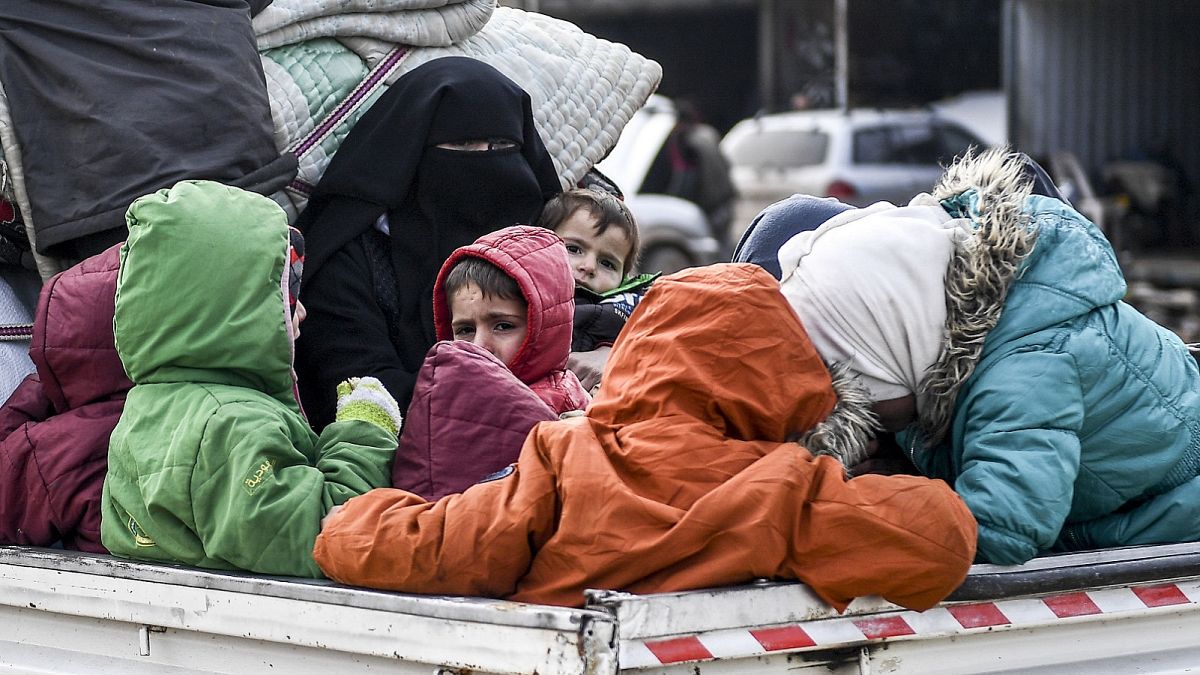There are few issues more critical to the plight of the world’s women and girls today than the humanitarian crisis in Idlib, Syria. Of the estimated 1 million internally displaced people in the northern Syrian province, an estimated 80% are women and children.
There are few issues more critical to the plight of the world’s women and girls today than the humanitarian crisis in Idlib, Syria. Of the estimated 1 million internally displaced people in the northern Syrian province, an estimated 80% are women and children. All have been forced to flee the indiscriminate bombings of the Assad regime and its Russian allies in the coldest months of winter, and none of them know what the future holds or if they will ever return to their homes.
On International Women’s Day this week, as the world reflects on what it can do to advance the rights and needs of women and girls, it must grasp its opportunity, finally, and commit to helping the people of Idlib.
For the last several years, the United States and much of Europe have turned their backs on the refugee crisis, abandoning the millions of civilians trapped under bombs in Syria, while leaving Turkey to assume near full responsibility for the humanitarian assistance of millions escaping that very violence. The world must wake up to the fact that the worst of this crisis is still in front of us, and this time, women and girls are enduring the majority of the suffering.
The unspeakable violence of the Russian-backed Assad regime over the last several weeks will have lifelong mental and physical health consequences for all civilians in Idlib. That trauma is amplified for women and girls. Foremost, Assad’s forces routinely and systematically use rape and sexual violence as weapons to instill fear, punishment or humiliation against their own people, making women and children the primary targets.
For those who have fled their homes, the lack of safe and reliable shelter creates similar dangers. With Syrian refugee camps already beyond capacity, most internally displaced people in Idlib are forced to take refuge in tents, open spaces or unfinished buildings – environments that make women and girls even more vulnerable to gender-based and sexual violence.
Reports of deaths from cold exposure are growing by the day due to these inadequate living conditions, and basic necessities like clean water and food are scarce. Access to medical care is also severely limited, mostly because the Assad regime has deliberately targeted hospitals. Women and girls – like other displaced people – who are injured, fall ill or who live with chronic illness have no way to receive the health services they need, and the lack of access to care for pregnant women exacerbates these concerns.
Until this genocide is ended, the harsh reality is that women and girls will bear the brunt of its horrors. But the world isn’t resigned to sit idly by. The world can do something about it.
The US and Europe can - and should - step in and help. However, in nearly nine years of war in Syria, most of the West has expected neighbouring Turkey to absorb the majority of the responsibility for this humanitarian crisis, with help from Jordan and Lebanon. For years, Turkey has assumed that role, after agreeing in 2016 to host migrants within its borders and curb them from entering Europe.
That has brought us to where we are today, with Turkey hosting 3.6 million refugees from the Syrian War – more than every other country in the world combined.
Now, Turkey has committed military forces to protect its borders and fight against Assad’s Russian-backed mass carnage inside Syria. This commitment has already cost the lives of at least 36 Turkish soldiers to Syrian bombs. As its NATO allies, Europe and the US cannot leave Turkey to assume full responsibility for fighting a war against Russia and the Assad regime, while simultaneously continuing as the only country accepting the region’s refugees.
Europe and the US must become part of the solution. They can provide military resources to help Turkey in its efforts to liberate the people of Idlib. They can live up to agreements they’ve made – and broken – to help fund the Syrian refugee crisis. And they can help build hopeful futures for the approximately 1 million internally displaced people of Idlib – the overwhelming majority women and children – by getting them out of harm's way and agreeing to give them safe haven for a time, rather than rejecting them at the border, or worse, shooting at them, spraying them with tear gas and other aggressive and violent acts.
This year’s theme for International Women’s Day is “Each for Equal” which means we all must focus on the choices we make to collectively create a more equal world for all. We are likely to see leaders in the West publicly embrace this theme with celebrations of achievements for women and girls, and pledges to do more in the future.
But it will be hard to do this with a straight face unless they open their doors to a group of women and girls who are some of the most vulnerable people in the world right now – who are begging them for help.
- Suzanne Meriden is the Executive Director of the Syrian American Council.
____________
Are you a recognised expert in your field? At Euronews, we believe all views matter. Contact us at view@euronews.com to send pitches or submissions and be part of the conversation.
